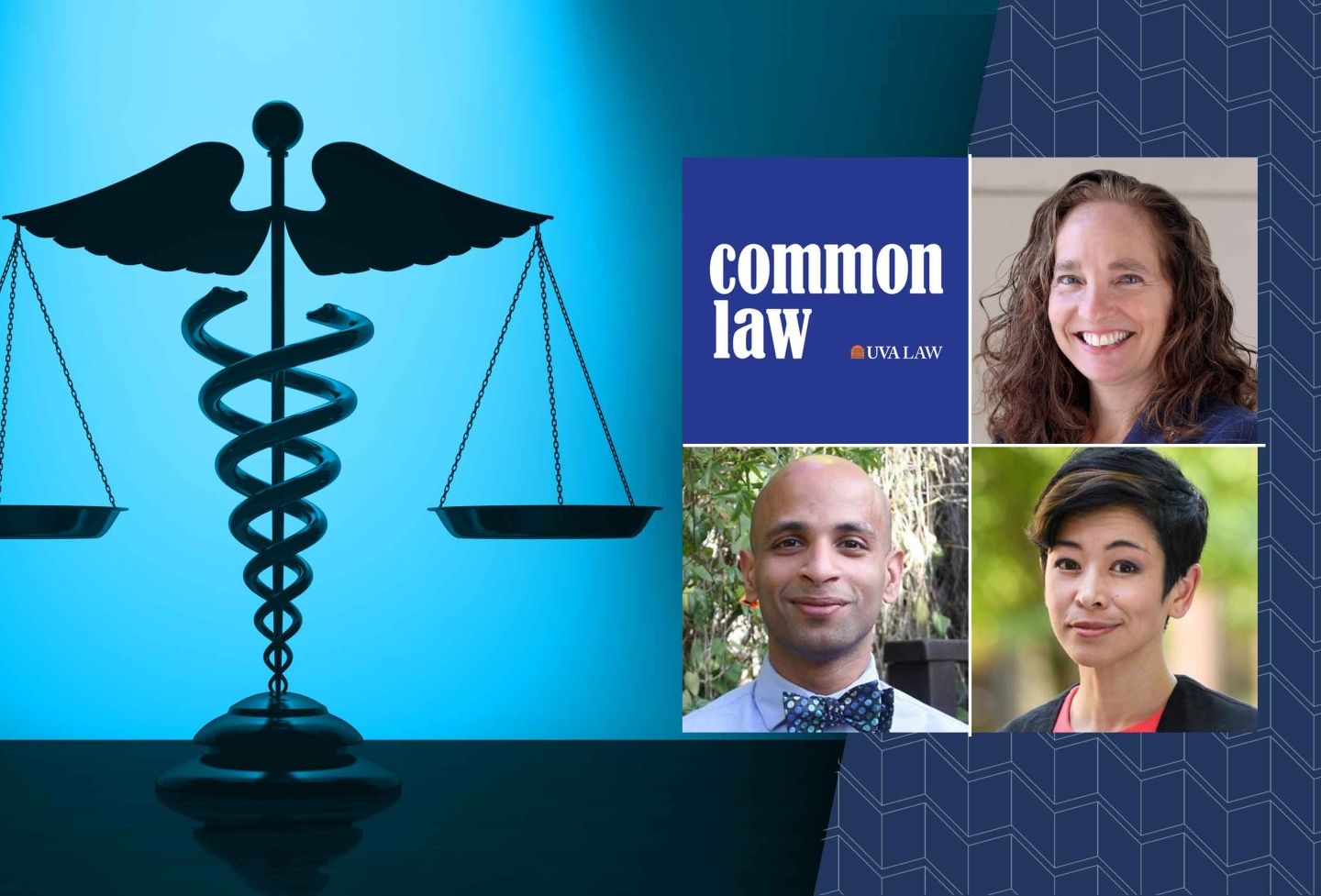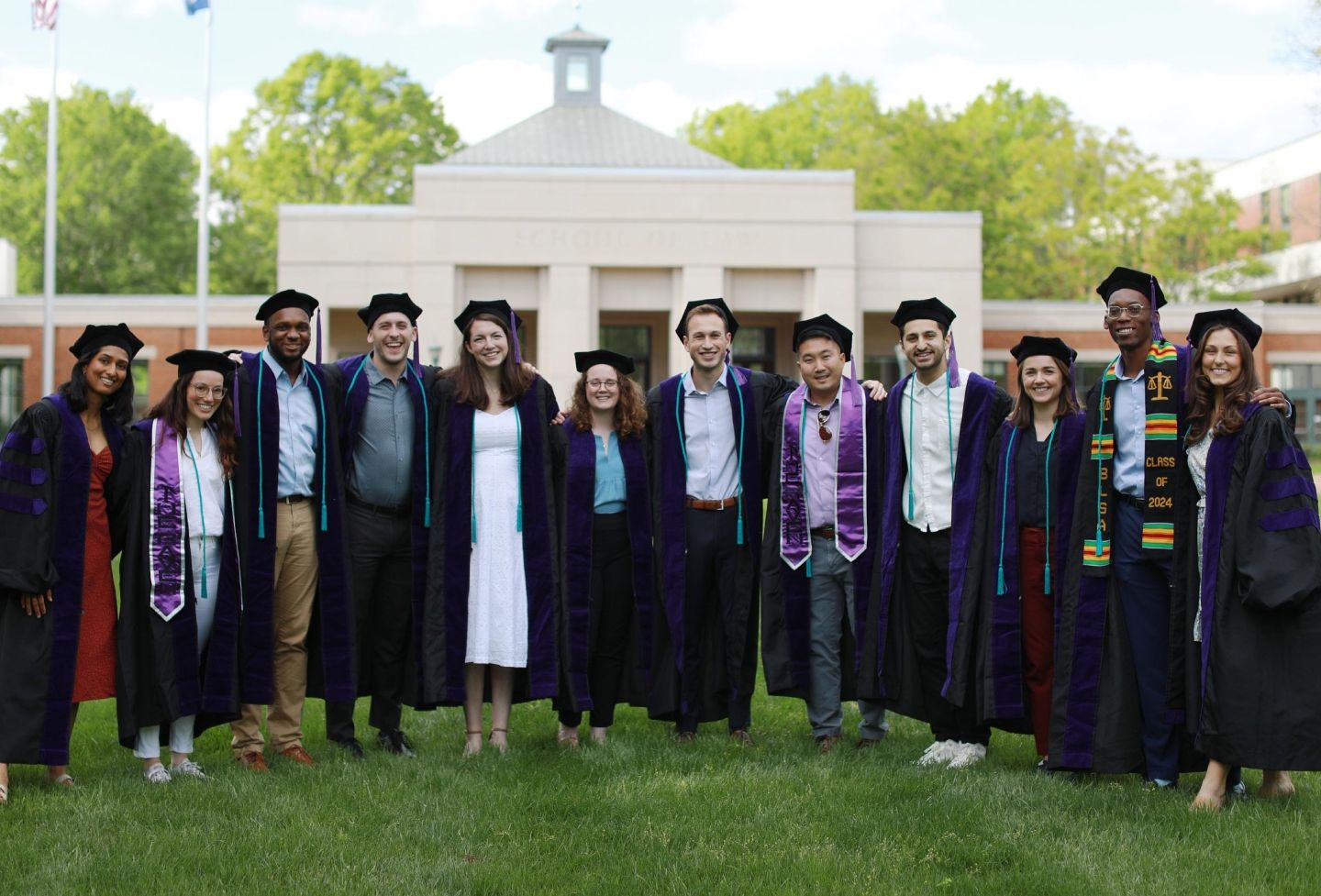Scholars Remember Armstead Robinson’s Intellectual Legacy

Scholar, professor, author, husband, father, intellectual pioneer—these are just some of the many roles the late Armstead L. Robinson played during his career in academia. Robinson, associate professor of history and director of the Carter G. Woodson Institute for Afro-American and African Studies at the University until his death in 1995, is best known for his scholarship on slavery and the collapse of the Confederacy; the University of Virginia Press recently published Bitter Fruits of Bondage: The Demise of Slavery and the Collapse of the Confederacy, 1861-1865, his final work.
A gathering of those close to Robinson convened to discuss his intellectual legacy on April 11 in Caplin Pavilion at an event sponsored by the Center for the Study of Race and Law and the Black Law Students Association. Speakers included Paul Gaston, professor emeritus of Southern and civil rights history at the University; Howard University history professor Joseph P. Reidy, and Corey D.B. Walker, an assistant professor of religious studies and African-American studies at the University. Armstead’s wife, law professor Mildred Robinson, moderated the event.
“I don’t pretend to know him better than anyone in the room knew him,” Reidy said. “But I think the beauty of occasions like this is that each of us knows the individual in a certain setting and in a certain way.”
In her introductory remarks, Robinson outlined her husband’s origins. Born in New Orleans in 1947, Armstead’s intellectual career began in segregated elementary schools in New Orleans and Memphis and continued into Yale College. During his time at Yale, Robinson helped design the Black Studies program and graduated in 1969 with honors. He received his Ph.D. from the University of Rochester in 1977.
Robinson noted her husband’s “holistic view of what written history should reflect” as central to his intellectual interests in the Civil War period. “His approach seemed to be correct, and of obvious intellectual importance,” she said.
When he passed, Robinson left behind the unfinished manuscript that would eventually become Bitter Fruits of Bondage.
“The work he had described to me in such detail and on which he had continued to labor throughout our marriage was unfinished,” she said. “I was determined, if at all possible, to see it through…We now have the completed volume that captures, to the best of our limited ability, his intellectual vision.”
Gaston worked closely with Robinson on developing and implementing a strong Black Studies program at the University. In 1968, students’ demands brought Black Studies to the University “as it came to many universities throughout the United States,” according to Gaston.
In its early years, the program showed room for improvement. “[It was] a pretty good program, but it wasn’t really what we should have,” Gaston said. As chair of the program, Gaston invited Robinson to the University as an associate professor and a program advisor for the newborn department.
“Armstead had a vision of what kind of program we should have,” he said. “So although there were four people who designed the program, there was only one who dreamed it up.”
Armstead and the University established the Woodson Institute to supervise the Black Studies major and also to recruit scholars as Ph.D. candidates and research fellows. “[The Woodson Institute] put us on the map as a major center for Afro-American Studies,” Gaston said. Eventually, through using Robinson’s pragmatic technique of setting aside professorships in individual departments for minority recruitment, the black faculty numbers doubled in one year.
Gaston outlined the history of Bitter Fruits, from its origins in Robinson’s dissertation through Robinson’s continual tinkering with the manuscript—a process cut short by Robinson’s early death. For Gaston, what makes Bitter Fruits, after its many years of labor, such a crucial work is that it argues, with an “extraordinary array of examples,” that race and class are the two main reasons for the decline of the Confederacy.
Reidy, who was instrumental in the development of the text after Robinson’s death, summarized Robinson’s contribution to the field of history as one that shifted notions of popular thought. “[His work involved] trying to interpret records to turn the Civil War, if not on its head, then on its side,” he said.
Reidy described Robinson’s intellectual ideas as ones heavily influenced by freedom, struggle, and the climate of the Vietnam War era that suffused so much of his early academic career. “He was very much interested in ideology and political ideology and how ideas could be used to change the world,” he said. “And he became fascinated with the study of history as a way of trying to understand that process.”
Robinson’s approach to the Civil War, in Reidy’s view, focused on an understanding of the social and political dynamics of Confederate society.
“He wanted to press the case that the actions of enslaved people had repercussions far beyond the local scene…This was the guiding principle behind Armstead’s entire work. He wanted to understand how ordinary people, who otherwise might have been oblivious to the world around them…how their actions really mattered historically.”
For Walker, a self-professed member of the “post-Armstead generation,” Robinson’s life and career represents the tasks and responsibilities of the black intellectual. “To think with Armstead is to rethink the very project of…the black intellectual,” he said.
Walker called attention to Robinson’s groundbreaking presence as an intellectual; Walker frowned upon the idea of consigning Robinson to being just a historian. Robinson was a scholar and thinker who constantly challenged the dictates of the North Atlantic academy and inaugurated an ethical practice that “[welcomed] the questioning of normal assumptions.”
Robinson’s intellectual practices, according to Walker, “remind us that we cannot rule out…those critical perspectives that conflict with regimented and sedimented paths of thinking.” Indeed, the late scholar’s entire career reflects the merit of developing “fresh understandings of what it means to think and be in our current world.”
Founded in 1819, the University of Virginia School of Law is the second-oldest continuously operating law school in the nation. Consistently ranked among the top law schools, Virginia is a world-renowned training ground for distinguished lawyers and public servants, instilling in them a commitment to leadership, integrity and community service.


